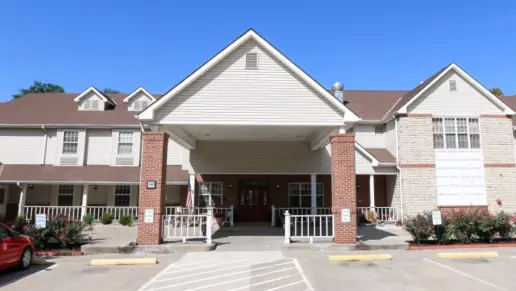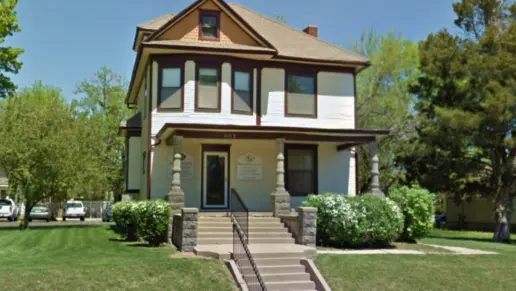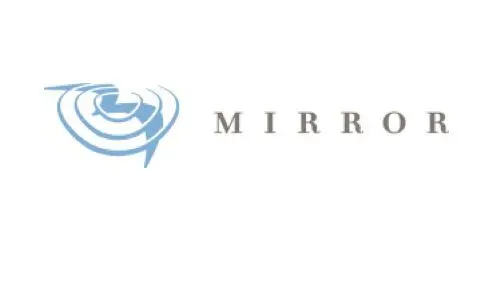My son was in there for 3 days and yet to speak to a therapist. What are you doing? Why would you not help people as soon as they get there. You make a bad situation worse. We are using our insurance and the fact that we have a co-pay makes this much worse. We are paying for ...
About Cottonwood Springs
Cottonwood Springs is a mental health and substance use disorder treatment center in Olathe, Kansas. They are accredited by The Joint Commission and offer both inpatient and outpatient programs for adults 18 years and older. The treatment center is an in network provider for most of the major insurance providers. They also have financial counselors who can help you understand your coverage.
It’s important to detox from whatever substances you’re using, so during your initial assessment, the doctors will determine whether you need a supervised detox. They offer an inpatient medically supervised detox program for safe substance use withdrawal. The detox period varies depending on the severity of your substance use, but it can take as long as 10 days. Once you’re stabilized, they’ll encourage your participation in group therapy.
You’ll continue with therapy throughout your inpatient stay. After detox, the doctors may determine you need dual diagnosis treatment. This is treatment for any underlying mental health disorders, which are not uncommon in people with substance use disorder. Often, substances are a way to cope with the symptoms of mental health issues, such as bipolar disorder, schizophrenia, anxiety and depression. Whether you have a dual diagnosis or not, during inpatient addiction treatment, you’ll participate in therapy, educational programs and recreational activities. All therapies are tailored to your unique needs.
Upon discharge, your therapist may want you to move into a partial hospitalization program (PHP). This is a structured outpatient treatment program. The PHP involves treatment five days a week for as much as 12 hours a day. You can live at home while you’re participating in the PHP. You’ll continue intensive therapy with your treatment team. You’ll also have access to healthcare providers. You’ll have recreation opportunities, wellness education, group and family therapy and medication supervision if appropriate.
They also have an intensive outpatient program (IOP) which is appropriate if you need a program but don’t need the intensity of an inpatient program or PHP. The IOP is usually three to five days a week with a few hours of treatment per day. They offer medication management, individual therapy, support meetings and addiction education.
Facility Overview
Latest Reviews
Rehab Score
Gallery
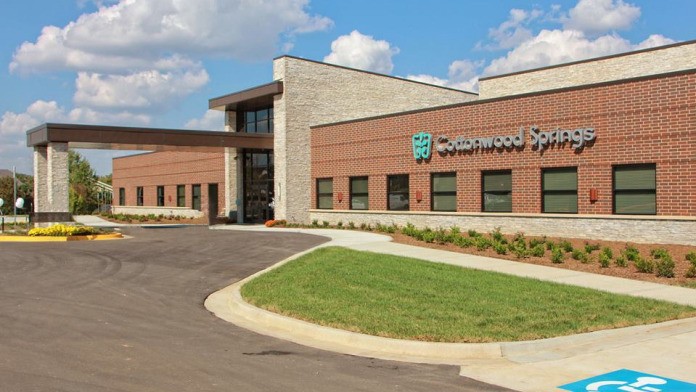
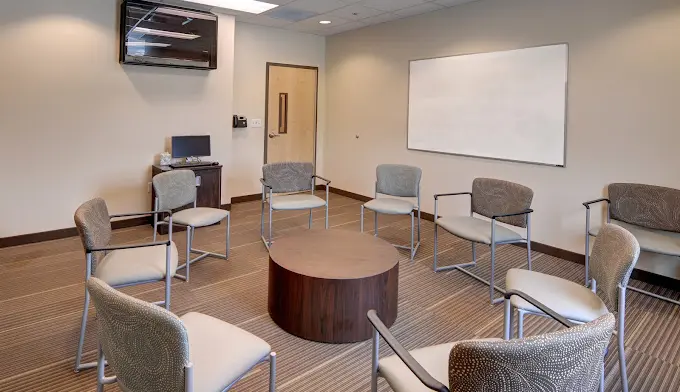
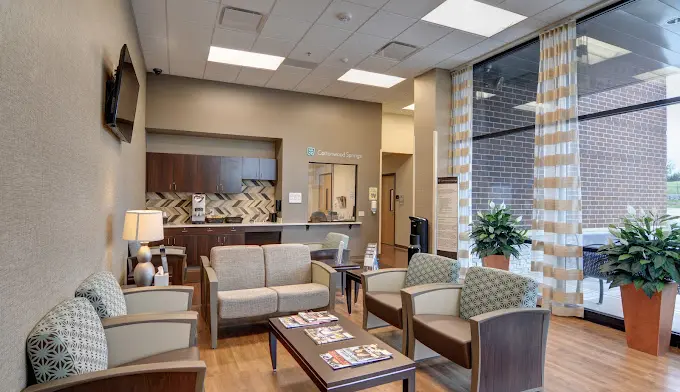
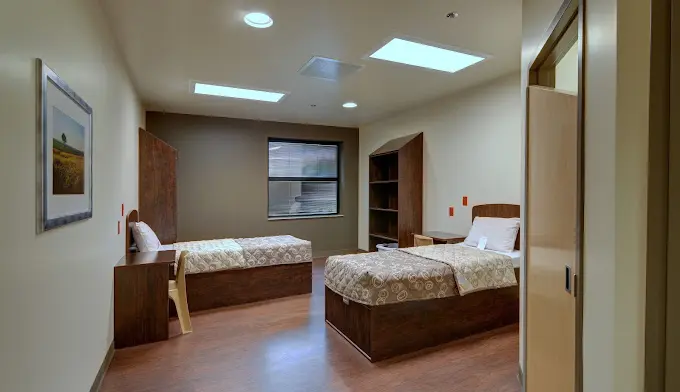
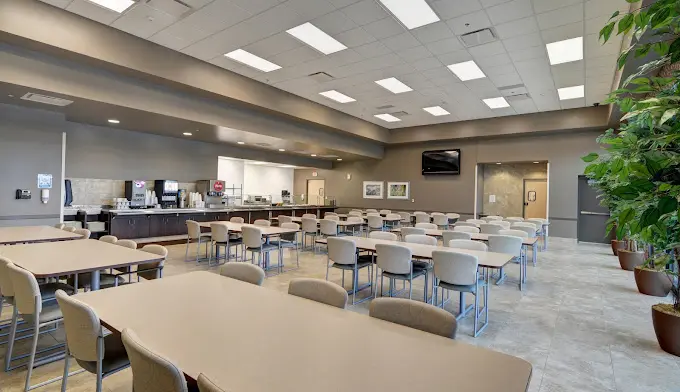

Location
Accepted Insurance
Other Forms of Payment
Self-pay involves paying for treatment out of your own pocket. You can use savings or credit, get a personal loan, or receive help from family and friends to fund your treatment. If you don't have insurance or your insurance plan doesn't cover a specific program, self-pay can help ensure you still get the care you need.
Private insurance refers to any kind of healthcare coverage that isn't from the state or federal government. This includes individual and family plans offered by an employer or purchased from the Insurance Marketplace. Every plan will have different requirements and out of pocket costs so be sure to get the full details before you start treatment.
Medicare is a federal program that provides health insurance for those 65 and older. It also serves people under 65 with chronic and disabling health challenges. To use Medicare for addiction treatment you need to find a program that accepts Medicare and is in network with your plan. Out of pocket costs and preauthorization requirements vary, so always check with your provider.
Financial aid can take many forms. Centers may have grants or scholarships available to clients who meet eligibility requirements. Programs that receive SAMHSA grants may have financial aid available for those who need treatment as well. Grants and scholarships can help you pai for treatment without having to repay.
Military members, veterans, and eligible dependents have access to specific insurance programs that help them get the care they need. TRICARE and VA insurance can help you access low cost or no cost addiction and mental health treatment. Programs that accept military insurance often have targeted treatment focused on the unique challenges military members, veterans, and their families face.
Medicaid is a state based program that helps lower-income individuals and families pay for healthcare. Medicaid covers addiction treatment so those enrolled can use their coverage to pay for rehab. When a program accepts Medicaid the client often pays very little or nothing out of their own pocket.
Addiction Treatments
Levels of Care
Treatments
The goal of treatment for alcoholism is abstinence. Those with poor social support, poor motivation, or psychiatric disorders tend to relapse within a few years of treatment. For these people, success is measured by longer periods of abstinence, reduced use of alcohol, better health, and improved social functioning. Recovery and Maintenance are usually based on 12 step programs and AA meetings.
The length, intensity, setting, and treatment methods vary for each drug rehab in Kansas. Plans of care can be tailored to meet each person's own unique situation and needs. With the right program, individuals can successfully achieve long-term sobriety.
Many of those suffering from addiction also suffer from mental or emotional illnesses like schizophrenia, bipolar disorder, depression, or anxiety disorders. Rehab and other substance abuse facilities treating those with a dual diagnosis or co-occurring disorder administer psychiatric treatment to address the person's mental health issue in addition to drug and alcohol rehabilitation.
A combined mental health and substance abuse rehab has the staff and resources available to handle individuals with both mental health and substance abuse issues. It can be challenging to determine where a specific symptom stems from (a mental health issue or an issue related to substance abuse), so mental health and substance abuse professionals are helpful in detangling symptoms and keeping treatment on track.
Opioid rehabs specialize in supporting those recovering from opioid addiction. They treat those suffering from addiction to illegal opioids like heroin, as well as prescription drugs like oxycodone. These centers typically combine both physical as well as mental and emotional support to help stop addiction. Physical support often includes medical detox and subsequent medical support (including medication), and mental support includes in-depth therapy to address the underlying causes of addiction.
Programs




Clinical Services
Cognitive Behavioral Therapy (CBT) is a therapy modality that focuses on the relationship between one's thoughts, feelings, and behaviors. It is used to establish and allow for healthy responses to thoughts and feelings (instead of unhealthy responses, like using drugs or alcohol). CBT has been proven effective for recovering addicts of all kinds, and is used to strengthen a patient's own self-awareness and ability to self-regulate. CBT allows individuals to monitor their own emotional state, become more adept at communicating with others, and manage stress without needing to engage in substance abuse.
Dialectical Behavior Therapy (DBT) is a modified form of Cognitive Behavioral Therapy (CBT), a treatment designed to help people understand and ultimately affect the relationship between their thoughts, feelings, and behaviors. DBT is often used for individuals who struggle with self-harm behaviors, such as self-mutilation (cutting) and suicidal thoughts, urges, or attempts. It has been proven clinically effective for those who struggle with out-of-control emotions and mental health illnesses like Borderline Personality Disorder.
Families have the opportunity to participate in education and support groups to increase their understanding of mental illness. This process helps them learn about themselves and their roles and responsibilities in the recovery process. With this important information in hand, the family has a greater opportunity to reunite and start interacting in a more helpful and healthy manner.
Group therapy is any therapeutic work that happens in a group (not one-on-one). There are a number of different group therapy modalities, including support groups, experiential therapy, psycho-education, and more. Group therapy involves treatment as well as processing interaction between group members.
In individual therapy, a patient meets one-on-one with a trained psychologist or counselor. Therapy is a pivotal part of effective substance abuse treatment, as it often covers root causes of addiction, including challenges faced by the patient in their social, family, and work/school life.
The goal of trauma therapy is to address the lingering emotional and physical responses from witnessing or experiencing a traumatic event. Your therapist helps you develop strategies that manage your symptoms while processing the traumatic memories. This improves your overall well being and reduces your physical and emotional responses to triggers.
By learning life skills during rehab in Kansas, you can learn how to manage daily life in recovery. These skills will help you establish a new and independent life. They'll help you develop a healthy daily routine, practice self care, and cultivate healthy relationships.
Long term substance use causes chemical imbalances in the body that cause cravings, depression, and other conditions that perpetuate the cycle of addiction. Nutrition therapy addresses these imbalances by providing the foods your body needs for optimal function.
Amenities
-
Private Setting
-
Gym
-
Residential Setting
Accreditations

The Joint Commission, formerly known as JCAHO, is a nonprofit organization that accredits rehab organizations and programs. Founded in 1951, the Joint Commision's mission is to improve the quality of patient care and demonstrating the quality of patient care.
Joint Commission Accreditation: Yes
Contact Information
13351 S. Arapaho Drive
Olathe, KS 66062







